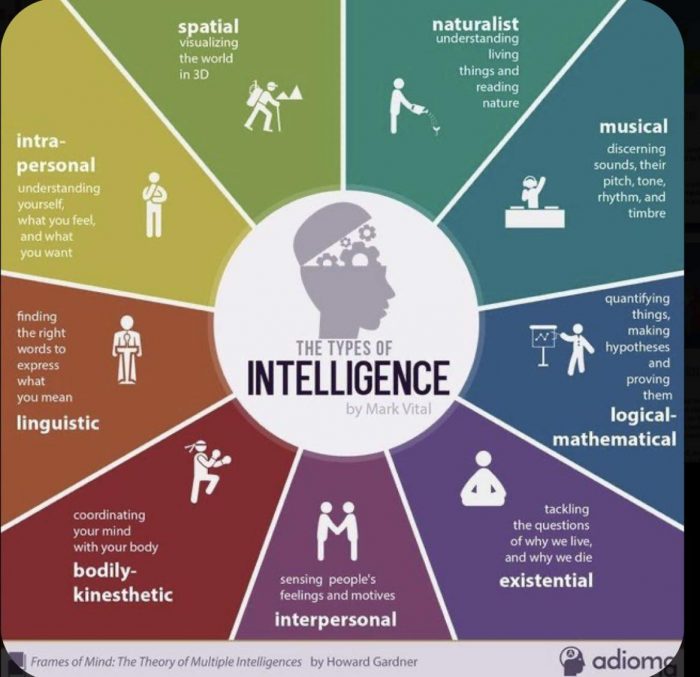
Just like there are many different types of people in the world, there are many different types of intelligence. Some people have a high degree of spatial intelligence, which means they can visualize things better than other people. Other people may be more logical or naturalist – but no matter what your type is, we all need to work on them all! So here’s a list of all nine types:
1. Spatial
Spatial intelligence is the ability to understand and remember the space around you. It’s used to visualize and manipulate objects in your mind, which is useful for tasks like architecture, engineering or art. Spatial intelligence also helps us in sports (like basketball) and games (like chess).
2. Naturalist
Naturalist intelligence is about being able to recognize and understand the world around you. It’s about being able to identify plants, animals and other natural features as well as understand their relationships with each other. The naturalist is good at noticing details in his or her environment that others might miss, like a small lizard darting under a rock or a bird singing its song from high above them on an oak tree branch–and then keeping those observations in mind when they’re looking for something else later on (like where they saw those lizards last).
3. Musical
Musical intelligence is the ability to play, sing and create music. Music is a language that can be used to express yourself. Music can help you learn about other cultures through listening and performing different styles of music from around the world. Music teaches math, science and history because it involves counting rhythms and beats, understanding scales (for example, major vs minor), memorization techniques like solfege (do re mi fa so la ti do) which will help you with sight singing songs in school band class etc., as well as learning about historical figures such as Beethoven who composed many famous pieces during his lifetime!
4. Logical
Logical intelligence is the ability to think logically. It’s important for problem solving, reasoning and analysis. Logical intelligence is one of the most important types of intelligence and can be developed in children through various activities like puzzles and games that involve reasoning skills.
5. Existential
Existential intelligence is the ability to understand and deal with life’s fundamental questions. It is the ability to be aware of your own existence, and to have a sense of purpose in life. People who are existentialists tend to be introspective and self-aware.
6. Interpersonal
Interpersonal intelligence is the ability to understand other people and build relationships with them. It includes the ability to read body language, facial expressions and non-verbal cues (e.g., tone of voice), understanding the impact of words on others (e.g., how a compliment can make someone feel good), and being able to build rapport with others by being sensitive to their needs and feelings, even if you don’t share those same needs or feelings yourself. For example, if someone has had a bad day at work, you might ask them about it instead of saying something like “That’s too bad.”
7. Kinesthetic
The kinesthetic learner is someone who learns by doing. They may do well in sports or dance and be less likely to do well in a traditional classroom setting. Kinesthetic learners might have trouble with reading or writing because their brains are processing information differently than others’.
8. Linguistic
Linguistic intelligence is the ability to use language effectively. This can mean a lot of different things, but in general it refers to your ability to communicate your ideas clearly and effectively, understand others’ ideas, even if they’re expressed through words or gestures rather than written or spoken language, and learn new things by reading, listening, talking with other people about them–whatever works best for you!
9. Intra-Personal
Intra-personal intelligence is the ability to understand and control one’s own emotions, thoughts and behavior. It’s also known as self-awareness or self-management. Intra-personal intelligence allows a person to, understand their own feelings, desires and motivations, recognize how their moods affect others, and control the impulses that may lead them into trouble.
We hope that by now you have a better understanding of the different types of intelligence, and how they can be used in your daily life. Don’t make the mistake of assuming that your child’s one type is the only one that matters–that would be like saying that because someone has a good eye for detail (which is an example of spatial intelligence), they’re not also good at math or reading! The point here is that there are many different kinds of smarts out there, so don’t judge people based on what kind(s) they possess.
